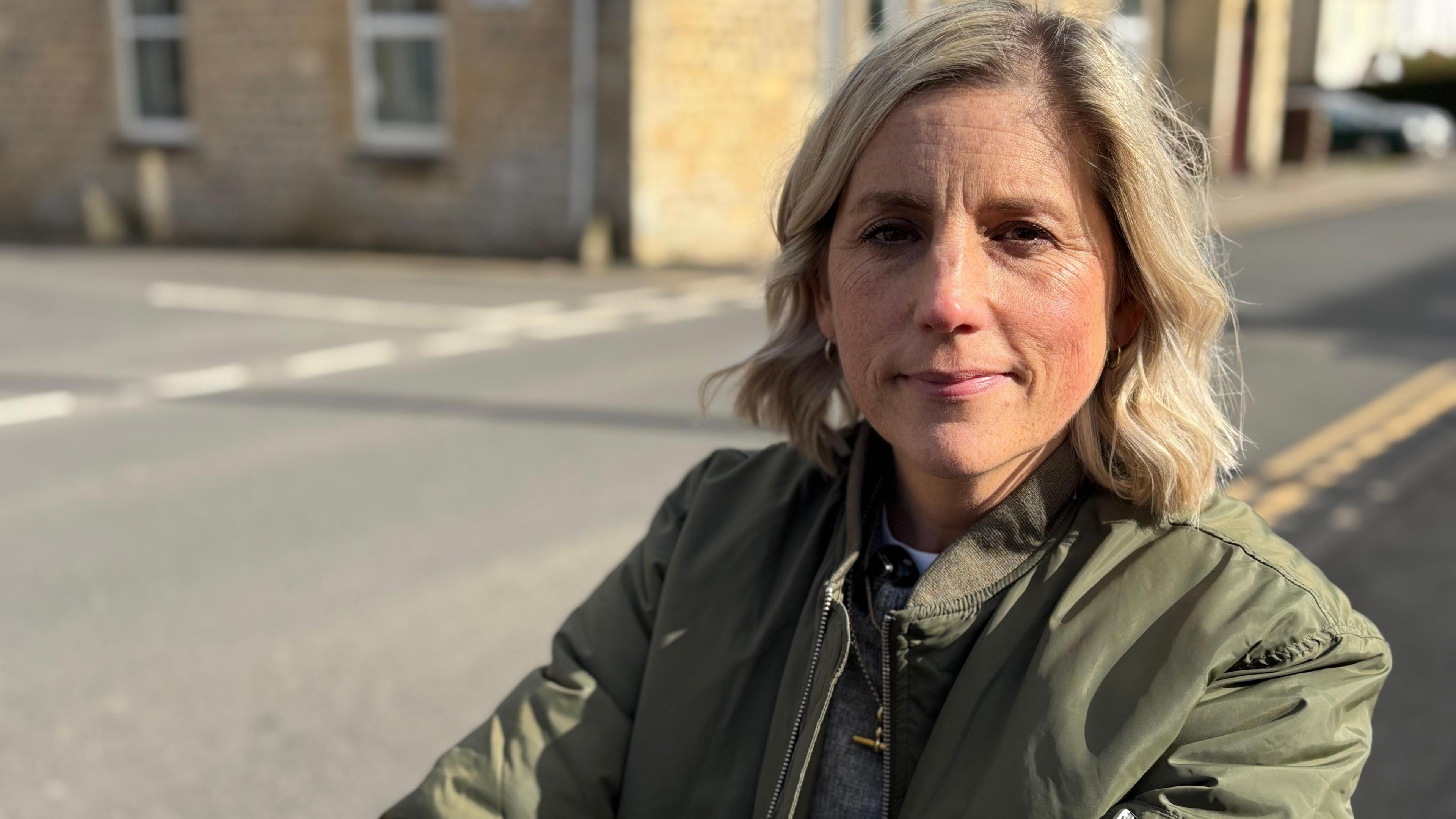'Medics dismissed my long Covid as anxiety'
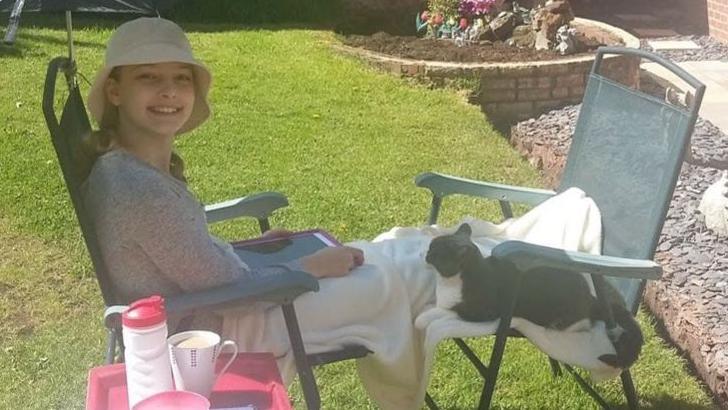
Tilly is now home-schooled because she is too poorly to attend regularly
- Published
An 18-year-old who has been suffering from long Covid for five years says she turned to a private clinic for treatment after feeling "brushed off" by the NHS.
Tilly Galloway, from Tamworth, has experienced heart issues, dizziness and fatigue since catching Covid-19 when she was 12.
"My life just completely changed," she said. "I was always running around, active and now some days I can't get out of bed or get dressed."
The NHS said staff were working hard to help patients with the "new and complex condition", and specialist clinics had supported over 100,000 since 2020.
Walking through Birmingham's Cannon Hill Park, Tilly looks like any other 18-year-old.
But her exhaustion and breathlessness mean she can only manage short distances about once a week. Sometimes, if she wants fresh air, she uses a wheelchair.
"I really don't like it. I feel really self-conscious," she said.
"Whenever I do go out in it, I always get stares, as if people are wondering why I'm using one."
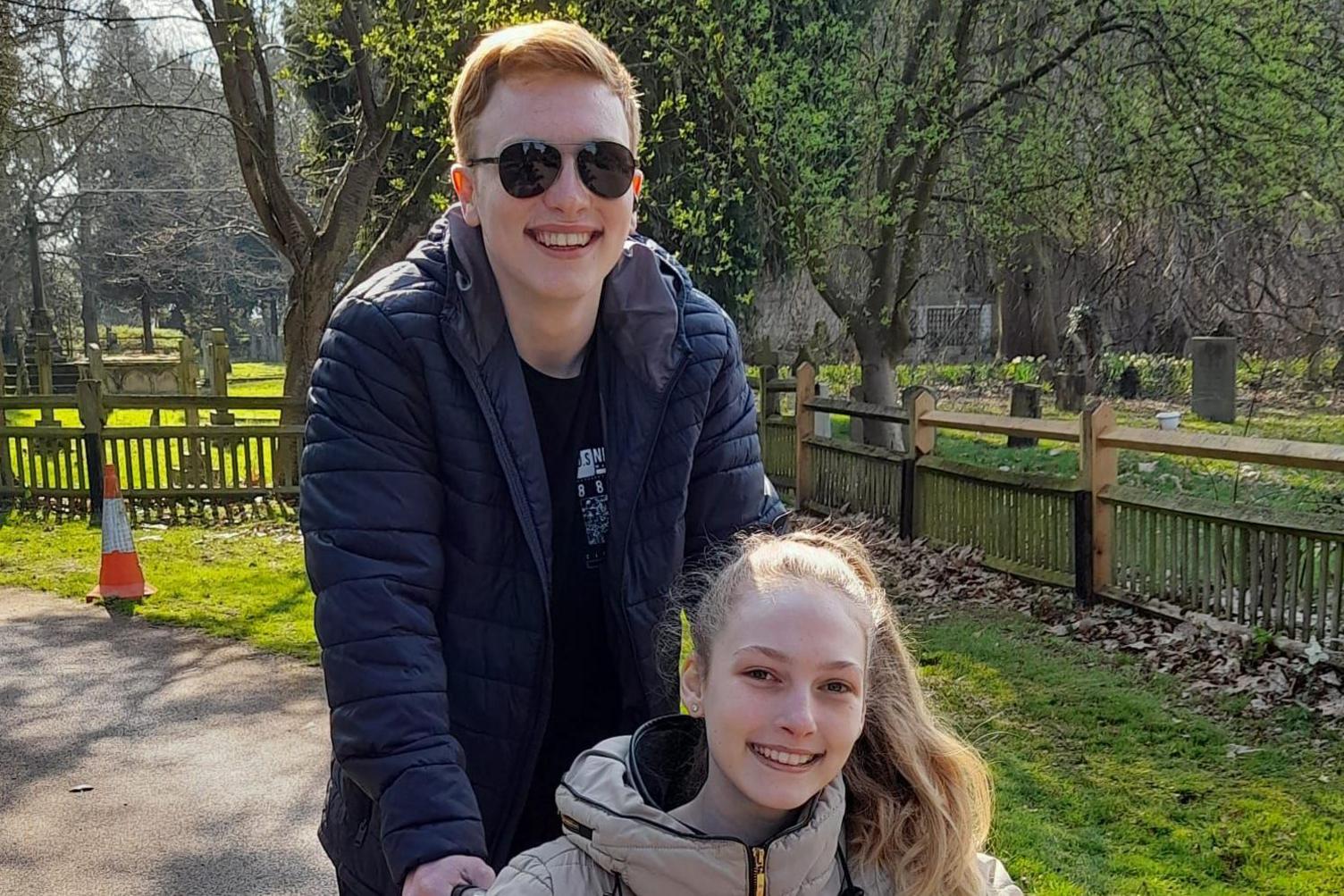
At weekends, Tilly usually goes out with her brother Jack for walks, but sometimes has to use a wheelchair
She is one of more than two million people in the UK with long Covid, external, which can also cause joint pain and brain fog.
At first, Tilly turned to the NHS for help, where she was told chest pains and breathlessness were caused by asthma and given an inhaler.
Although this reduced her shortness of breath, tests later showed she was not asthmatic and diagnosed long Covid.
Tilly often felt her symptoms were not taken seriously. "They just sort of brushed it off," she said.
"They all just blamed it on anxiety and mental health and said I needed counselling.
"It just constantly feels like you're fighting a losing battle."
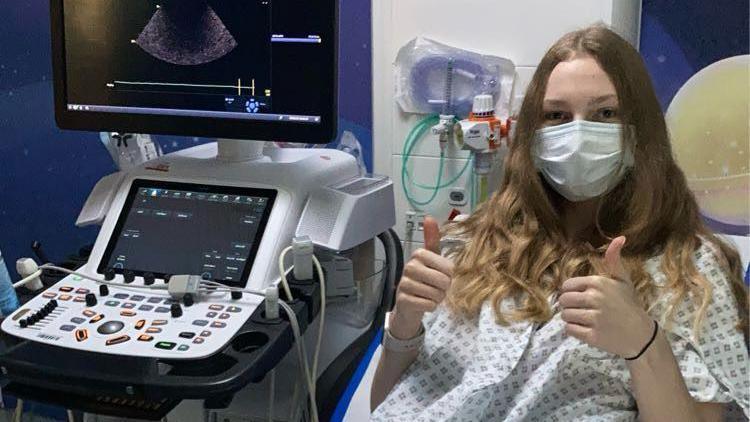
After feeling constantly dizzy, Tilly had an echo scan and was diagnosed with heart condition PoTS syndrome
Often too ill to go to school, she ended up having to leave in year 10, with her mum changing jobs to work from home and care for her.
After an echo scan, she was eventually diagnosed with postural tachycardia syndrome, external (PoTS), a condition long Covid sufferers are more likely to be affected by, where the heart rate increases very quickly after getting up.
The NHS also diagnosed gastroapresis, external, where food passes through the stomach more slowly than it should.
She was sent to an NHS long Covid clinic but said she did not receive much support beyond a physiotherapist and occupational therapist, who were only able to offer advice on adapting to her symptoms.
After a lot of different tests, her paediatrician said her condition was "too complex", leaving her with no answers, she said.
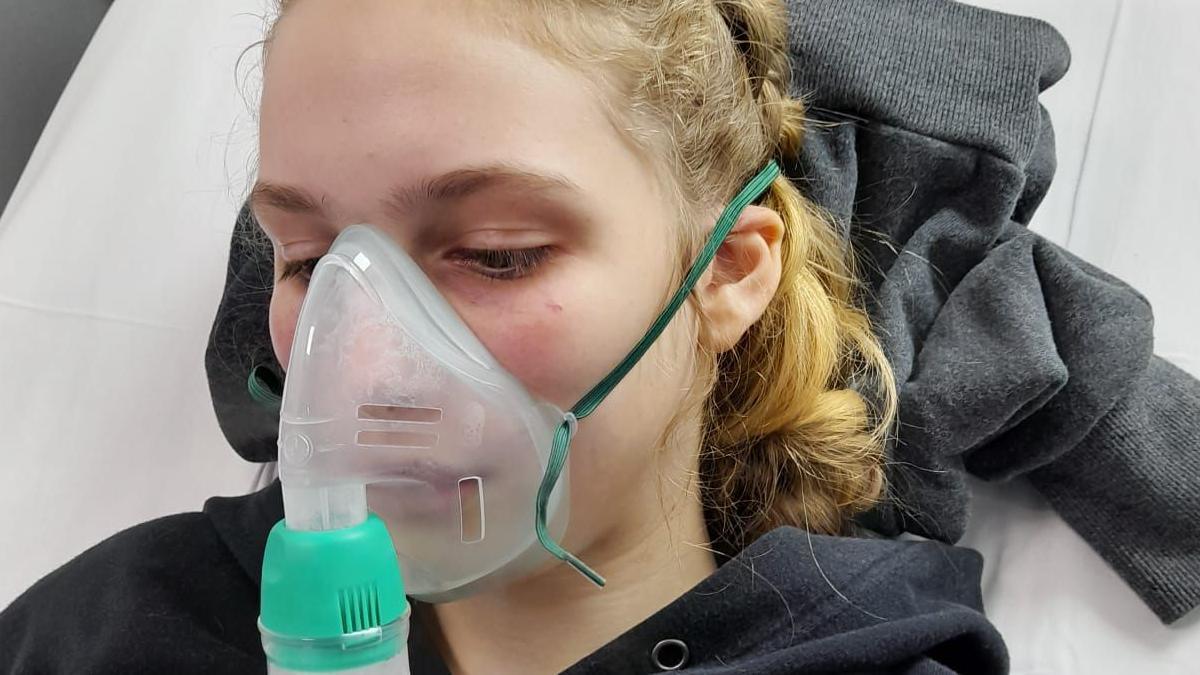
Tilly was diagnosed with a heart condition after experiencing serious chest pain, when she was put on a nebuliser machine to inhale medicine more easily
This prompted Tilly's mum, Nicola Booton, to join a Long Covid Kids website, which led her to Dr Ben Sinclair, a GP based in Birmingham.
He set up his own private long Covid clinic after recovering from the illness himself and is working with the University of Exeter on research into the condition.
Dr Sinclair described her condition as complex, due to "significant risk factors".
"Her case demonstrates that long Covid is not driven by a single factor," he said.
He hopes what he has learnt from patients like Tilly will assist in producing more guidelines for young people and children dealing with long Covid.
"What we're finding is that some people produce way too many antibodies and some people produce very little at all," he says.
"And those two groups get this fatigue syndrome because their immune system is either overactive or exhausted.
"There are some medications that can help, but the research is lagging behind."

Tilly's mum Nicola now acts as a full-time carer for her daughter and changed her job to primarily work from home
Since visiting Dr Sinclair, Tilly has been on a treatment plan where she has to take medication every day.
"It isn't cheap," said Ms Booton, who estimated she had spent about £20,000 on private treatment. "Financially there's been a big strain on us as a family."
But, she feels it has been worth the cost to see Tilly getting stronger and making some steps towards recovery.
Meanwhile, Tilly is being home-schooled and working towards her maths GCSE, when she feels up to it.
She hopes to contribute more in the future by becoming a children's paediatric nurse.
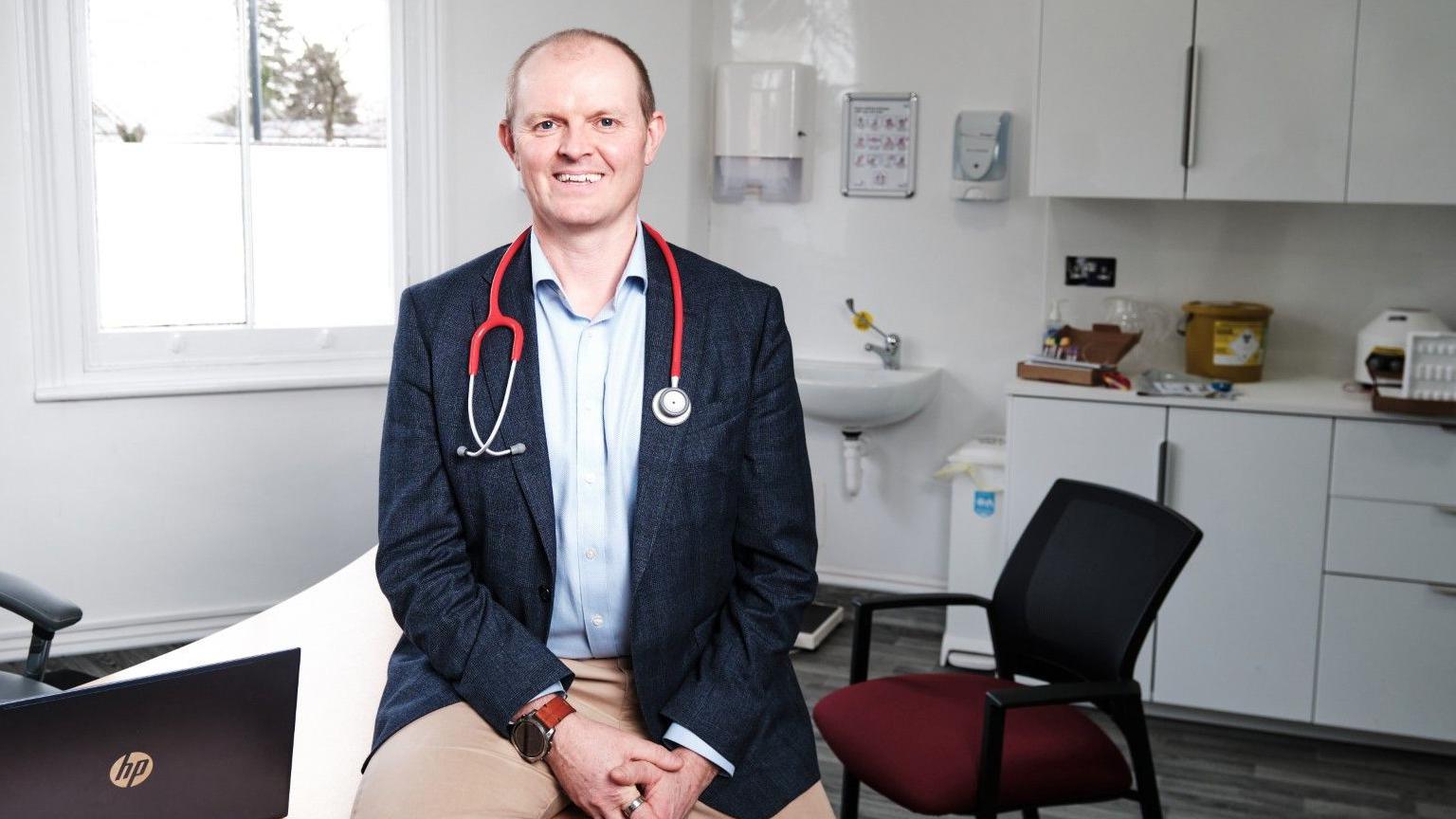
Tilly now visits Dr Ben Sinclair, who has been working with the University of Exeter to look at antibodies produced by long Covid
An NHS spokesman advised anyone concerned about ongoing symptoms after Covid to talk to their GP.
"Since 2020, our specialist post-Covid clinics have supported over 100,000 people with the long-term physical, cognitive and psychological effects of coronavirus," the spokesperson said.
They added the NHS had been "world leading" in "designing and implementing new pathways of care" to support affected patients.
Follow BBC Stoke & Staffordshire on Facebook, external, X, external and Instagram, external. Send your story ideas to: newsonline.westmidlands@bbc.co.uk, external
Related topics
- Published24 March
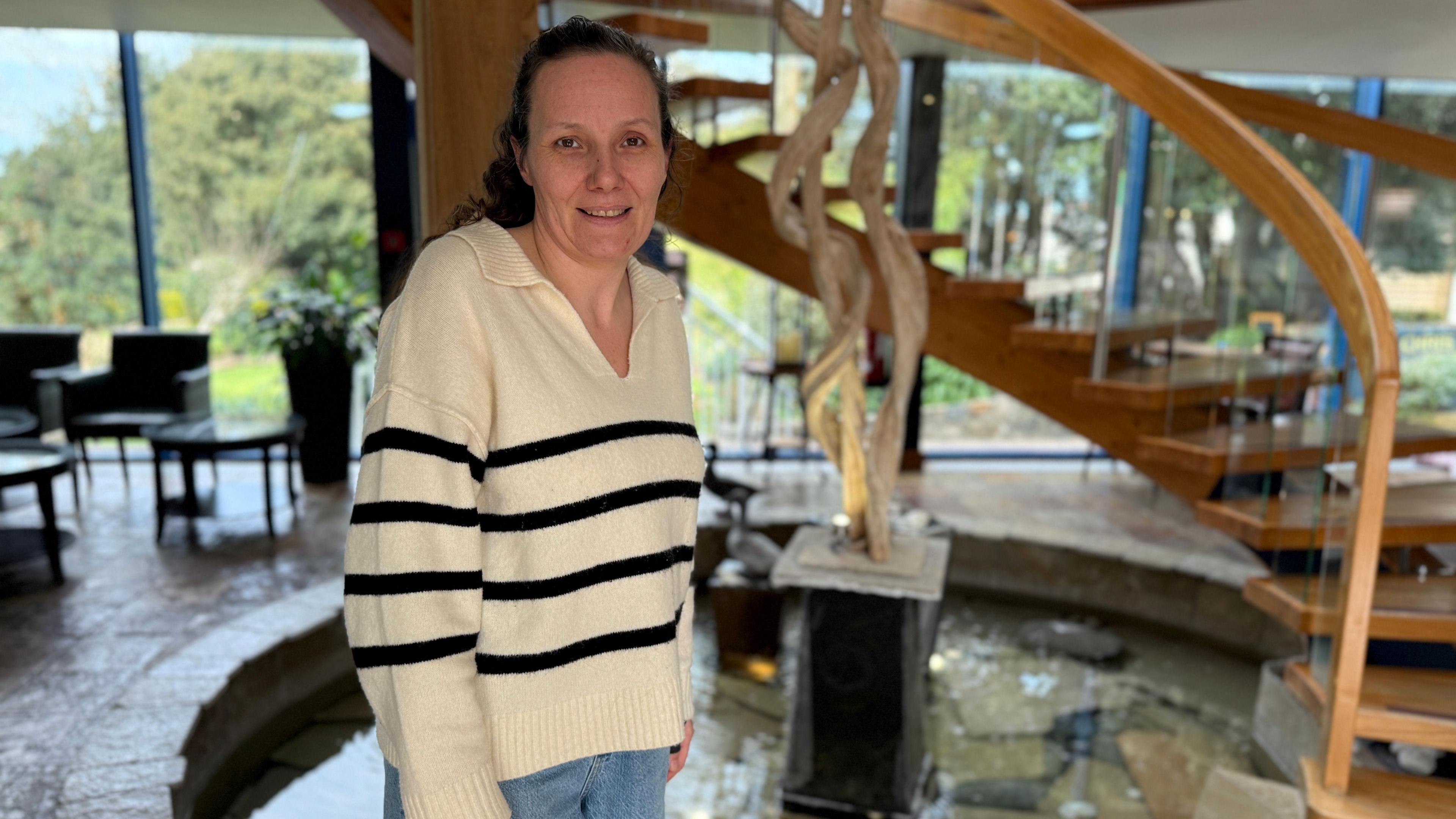
- Published24 March
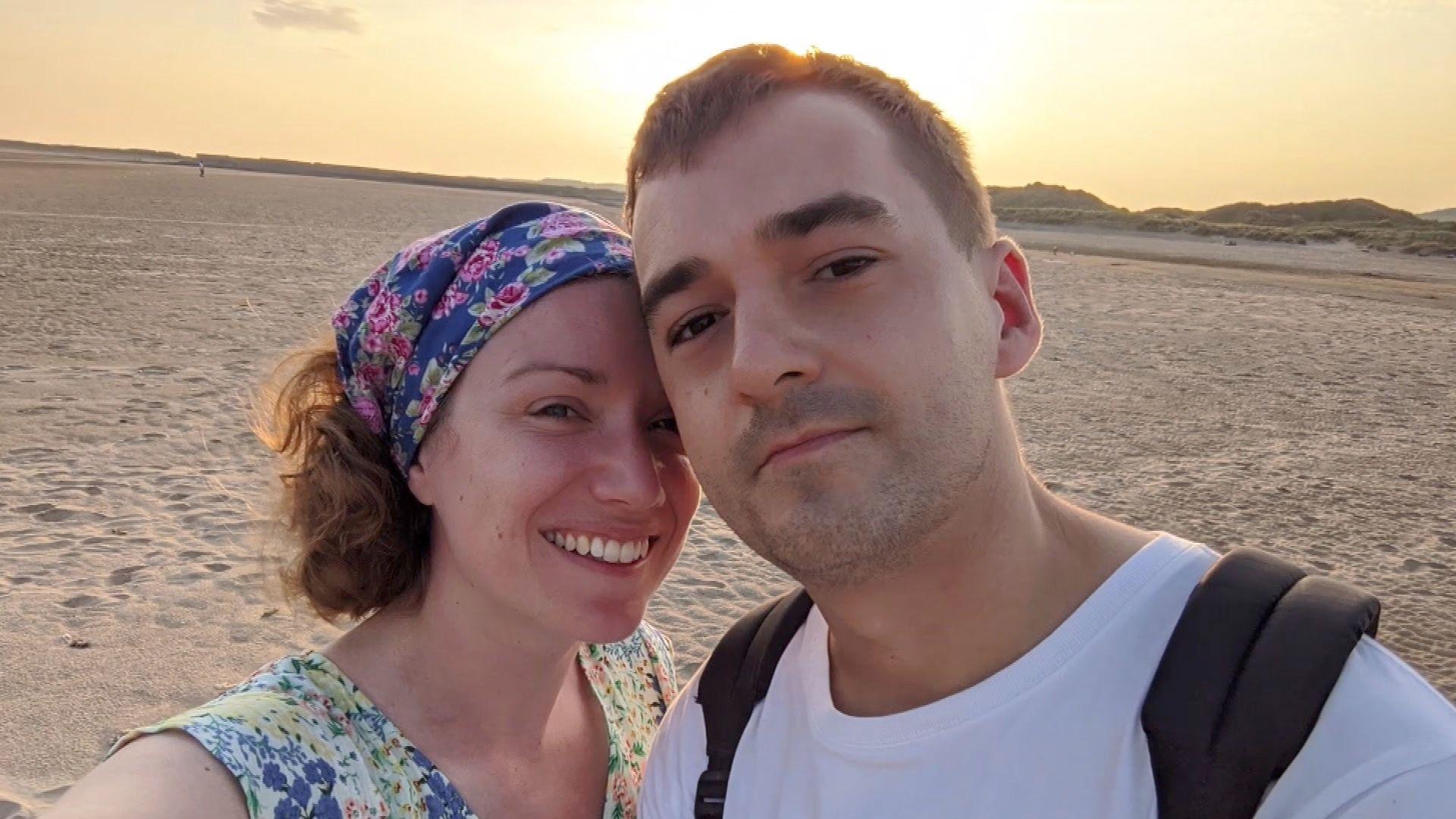
- Published23 March
